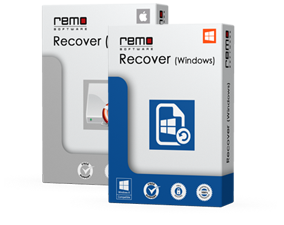Data recovery is called the restoration of data. Making deleted or corrupted data readable from a hard disk or tape drive is not an easy process and is recommended only for advanced users. With little PC background knowledge, computer data recovery should be best left to a data recovery expert. Under certain circumstances, the hard disk or the data carrier is damaged so far that the data can only be restored by a professional.
The causes that require data recovery from the hard drive are complex. More than half of the hardware is causing problems by having a defect in the hard disk drive or other computer components. But power outages can quickly lead to data loss. In case of emergency, you can take help of hard drive data recovery service.
About a quarter can be attributed to an operating error of the user. This includes, for example, the accidental deletion or formatting of the hard disk by the user but also an infection of the computer with a virus, compatibility problems or faulty application programs.
Perform regular backups
Unfortunately, the lifetime of a hard drive cannot be predicted concretely, but continuous operation and frequent accesses can lead to a defect after just a few years. In the first place is, therefore, the backup in advance. This means that a copy of the data is created on a different medium, such as a CD, DVD, or tape drive. This is often the only way to restore at least some of the important and sensitive data cheaply and safely.
Regular data backup and thus quick access to the archived information in an emergency have long become a matter of economic survival for many companies and in many areas even required by law. But also individuals, freelancers, and small businesses should back up their hard disk regularly. You should check your backups regularly for proper functioning, which also CD and DVD are subject to an aging process.

With a so-called backup software backup and restore your data is relatively quickly and easily possible for the average user.
Regular Disk Defragmentation
Periodic cleanup and defragmentation of the hard disk can significantly contribute to the complete recovery of data in the event of data loss. In addition, the user benefits from a tidy hard drive through higher reliability and better performance of the PC. To clean up your hard drive, there are numerous freeware tools that can be used to remove unnecessary data, delete temporary files, or simply uninstall unused programs.
Good free tools to clean up the hard drive are:
- CCleaner
- XP Clean
- HDCleaner
After cleaning the hard disk, you should perform defragmentation. Defragmentation is the process of rearranging files and folders in a file system so that gaps on the hard disk caused by installing and uninstalling programs are closed again. This has a positive effect on the access speed of your computer and also protects the read / writes head of your hard disk.
To defragment a drive, on the Windows XP system, click Start – My Computer. This is followed by a click with the right mouse button on the desired hard disk drive. In the following menu under the entry “Properties” select the menu item “Extras.” There you will find the Windows own tool for defragmentation. Since the defragmentation can take a while, you should not run any other applications on the PC during this time.

